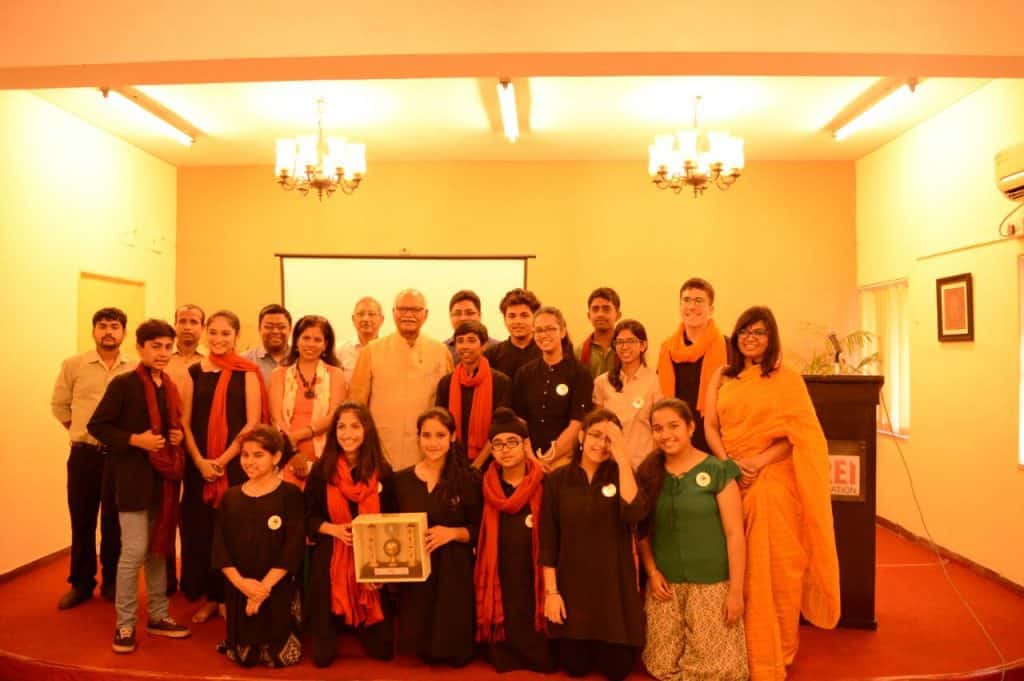“If you kill someone with a gun, if you shoot them, they die once. But if you throw acid on them they die every day.” These moving words by an acid attack survivor motivated Sandeed Farooq to take action.
Calm, collected and articulate, Delhi-based Sandeed shows a maturity far beyond his sixteen years. Alongside his co-founders Sakshi Agarwal and Neha Thadani, he started a campaign called “Flawless Flaws”, which works to raise both awareness and funds in support of acid attack survivors.
A student himself, Sandeed is not unlike many other students in a lot of ways. His favourite subject is history, although like most students, he says “I don’t like the exams.” He enjoys listening to music and painting, even though he is quick to emphasise that he only paints “a little, don’t expect any Leonardo da Vinci.” But his life changed when his school organised an awareness session with an acid attack survivor. After the talk, “I approached my headmistress and I asked her, it’s good that we’re calling them to spread awareness about the issue, but in what other way can we actually help them?”
Helping victims
Sandeed gained the support of some of his friends in this quest, and thus “Flawless Flaws” was founded.“Our campaign has two major aims. We understand that education is important so we spread awareness. And the second aim is raising funds. Raising funds is very important because the surgeries are very costly.”
As part of their work, they have also collaborated with ACFI (Acid Survivors Foundation India), travelling to Kolkata where they held awareness sessions. In the past nine months, they have spread awareness in about ten areas including slums, schools and universities through street plays and informative presentations.
Street plays are an effective means of raising awareness in an engaging manner. “In our street play we talk about first aid, then the need for empathy. We’re telling them to not do it, and that what has been done can’t be undone. And that even kind words can be of help to survivors. If you’re not going to monetarily support them, at least do not ridicule them for their condition. Empathise with them, talk to them.”
This insight comes based on the team’s interaction with survivors, both male and female. “What they say is that we don’t need any help from anyone, we’re not asking for sympathy. But kind words can motivate us to actually do something.”
Kind words, and monetary support. “Flawless Flaws” has managed to raise around INR 2.5 lakh, which they give directly to survivors. They have resorted to quite innovative means to raise funds, such as charging fines from uniform defaulters in their school. They have also introduced donor passes at festivals, and set up stalls to sell articles such as greeting cards and bookmarks to raise funds.
Getting to the roots
Sandeed is clearly passionate as he explains the extent of the problem. “1500 acid attacks take place every year, out of which one third take place only in India. And acid is something that came from the West. But because of the strict laws in the West, acid attacks have almost come down to zero, but in India there is a lack of legislation and implementation. And people are not so educated about what acid can actually do.”
Over time, however, he realised that he was not addressing the root of the problem. “You know why women are the targets in most cases? It’s because men want to show supremacy. It is not that it’s merely an expression of anger. It’s also about, ‘how could she reject me’, or ‘how can she have her own opinion about something?’ So it starts with the idea that she has to be under my foot, the idea that I can dictate the terms of someone else’s life. So now the campaign has shifted its focus from only talking about acid attacks to talking about anger, to talking about feminism, ways to actually deal with all the stress and how to treat someone as a human being first.”
Sandeed feels a strong motivation to continue his work “At the centre of every problem there are people and not just people, people who refuse to act.” At the same time, he realises that he cannot simply change everyone’s behaviour. For him, this is a continuous learning process, “I can’t go about changing the world, but what I can actually do is change the people around me, and start out by changing myself first.”
